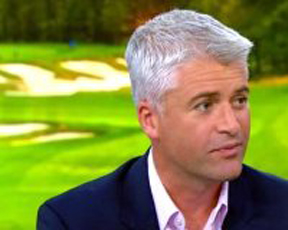
He invited all Gabonese, regardless of previous political affiliation, to participate. In March 1968, Bongo declared Gabon a 1-party state by dissolving BDG and establishing a new party-the Parti Democratique Gabonais (PDG). When M'Ba died in 1967, Bongo replaced him as president. After days of fighting, the coup ended and the opposition was imprisoned, with protests and riots. French paratroopers flew in within 24 hours to restore M'ba to power. When M'ba dissolved the National Assembly in January 1964 to institute 1-party rule, an army coup sought to oust him from power and restore parliamentary democracy.

After M'ba's accession to power, the press was suppressed, political demonstrations banned, freedom of expression curtailed, other political parties gradually excluded from power, and the Constitution changed along French lines to vest power in the Presidency, a post that M'ba assumed himself. The first president of Gabon, elected in 1961, was Léon M'ba, with Omar Bongo Ondimba as his vice president.

On 28 November 1958, Gabon became an autonomous republic within the French Community, and on 17 August 1960, it became fully independent. In World War II, the Allies invaded Gabon in order to overthrow the pro- Vichy France colonial administration. In 1910, Gabon became a territory of French Equatorial Africa, a federation that survived until 1958. Some Bantu groups lived in the area when France officially occupied it in 1885. He founded the town of Franceville and was later colonial governor. By the 18th century, a Myeni-speaking kingdom known as the Kingdom of Orungu formed, as a trading center with the ability to purchase and sell slaves, and fell with the demise of the slave trade in the 1870s.Įxplorer Pierre Savorgnan de Brazza led his first mission to the Gabon-Congo area in 1875. Pygmy peoples in the area were largely replaced and absorbed by Bantu tribes as they migrated. Main articles: History of Gabon and French Equatorial Africa Its GDP grew by more than 6% per year from 2010 to 2012. With petroleum and foreign private investment, it has the fifth highest HDI in the region (after Mauritius, Seychelles, Botswana and South Africa) and the fifth highest GDP per capita (PPP) in all of Africa (after Seychelles, Mauritius, Equatorial Guinea and Botswana). In the 1990s, it introduced a multi-party system and a democratic constitution that aimed for a more transparent electoral process and reformed some governmental institutions. Since its independence from France in 1960, the sovereign state of Gabon has had 3 presidents.

There are coastal plains, mountains (the Cristal Mountains and the Chaillu Massif in the centre), and a savanna in the east. It has an area of nearly 270,000 square kilometres (100,000 sq mi) and its population is estimated at 2.3 million people. Located on the equator, it is bordered by Equatorial Guinea to the northwest, Cameroon to the north, the Republic of the Congo on the east and south, and the Gulf of Guinea to the west. Gabon ( / ɡ ə ˈ b ɒ n/ French pronunciation: ), officially the Gabonese Republic ( French: République gabonaise), is a country on the west coast of Central Africa.


 0 kommentar(er)
0 kommentar(er)
